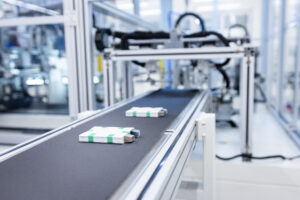Li-S Energy reports breakthrough in drone battery technology

Brisbane-based Li-S Energy announced an leap forward in its battery pouch technology development, powering a number of drone test flights.
The company successfully integrated these cells into battery packs that were tested in drone flights, with its first uncrewed aerial vehicle test in November achieving a 30-minute flight time on partial discharge, showing its capability for extended operational use.
It comes as the group continues its work on the “dawn to dusk” initiative, building a solar and battery powered drone that can fly al day without recharging.
Working with partners VTOL Aerospace and Halocell, the group has already been granted a $1.35 million grant as part of the Emerging Aviation Technology Partnerships program.
Li-S said this latest test has shown the drones were able to achieve sustained energy density of over 450 Wh/kg from its lithium sulfur pouch cells.
The announcement followed the August opening of Li-S Energy's Phase 3 production facility in Geelong by Federal Minister for Science and Industry Ed Husic. Li-S has also commissioned a small-format Phase 3S production line to manufacture smaller battery cells fro wearable technology.
The facility, which houses Australia's largest dry room, has an annual production capacity of up to 2MWh, making it the country's largest pouch cell manufacturing site.
The company reported its GEN3 semi-solid-state lithium-sulfur pouch cells reached 498Wh/kg on first discharge and 456Wh/kg after formation cycling. Li-S Energy also secured a $1.7 million Federal Government grant to install Australia's first lithium metal foil production line.
The company finished the first half of FY24-25 with $17.6 million in cash and cash equivalents.
Picture: LI-S Energy

The new Li-S Energy pouch cell production facility in Geelong, Victoria is the largest of its kind in Australia,
@aumanufacturing Sections
Analysis and Commentary Awards casino reviews Defence Gambling Manufacturing News Online Casino Podcast Technology Videos





